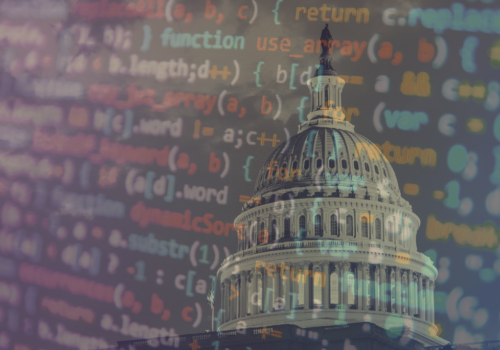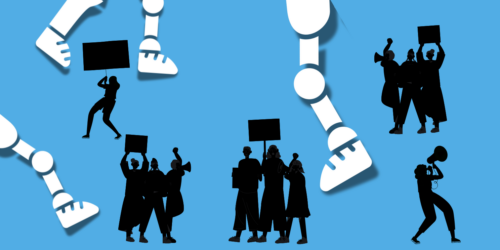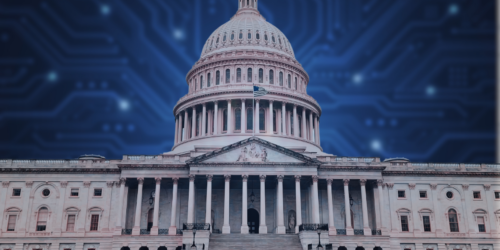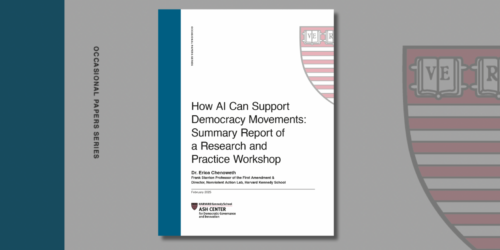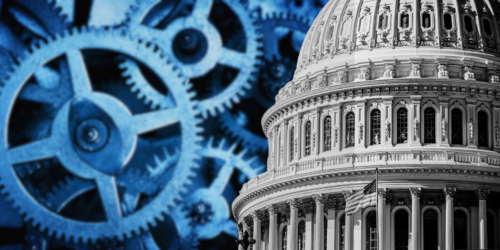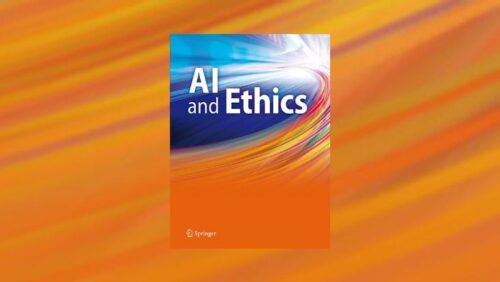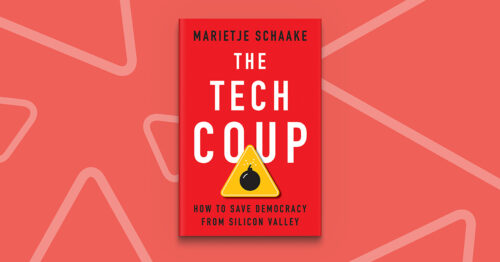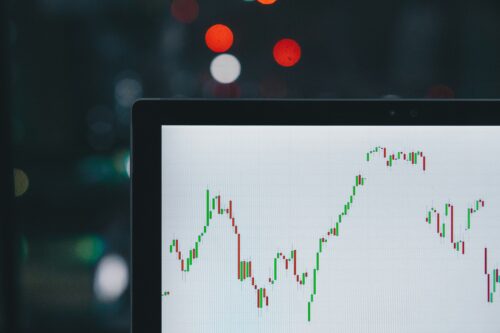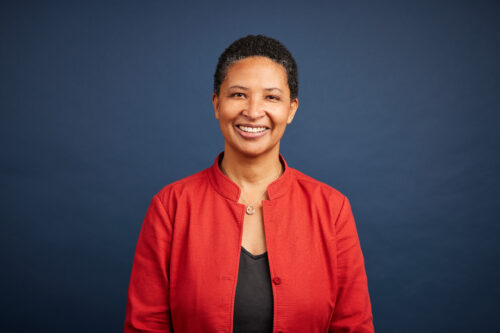
Danielle Allen
Professor of Public Policy, James Bryant Conant University Professor
Understanding the promises and perils that AI holds for the future of our democracy
Allen Lab for Democracy Renovation, Allen Lab: Technology & Democracy, Nonviolent Action Lab, Reimagining Democracy Program
The proliferation of artificial intelligence has the potential to upend our democracy — for better or worse.
AI tools could allow for new forms of participation while at the same time facilitating the spread of misinformation. As regulators and policymakers struggle to understand the implications of this new technology, Ash Center experts are answering questions about how best to govern AI and not just reactively respond to the many issues that continue to arise.
Can AI be a force for good in our democracy? How do we prevent it from becoming a tool for those who wish to undermine our institutions and trust?
Explore our latest events, research, and writing below.
Professor of Public Policy, James Bryant Conant University Professor
Director, Ash Center for Democratic Governance and Innovation;
Winthrop Laflin McCormack Professor of Citizenship and Self-Government
Adjunct Lecturer in Public Policy
Professor of the Practice of Public Policy, HKS;
Gordon McKay Professor of the Practice of Computer Science, SEAS
Commentary
Freddy Guevara offers a fundamental playbook for social activists on how to augment advocacy efforts with artificial intelligence technologies
Commentary
Building effective channels for the interaction between AI developers and activist communities is critical for innovating social mobilization and strengthening civil society.
Feature
Erica Chenoweth shares a brief addendum to the Nonviolent Action Lab’s workshop held in December 2024 on how AI can influence social mobilization, for better or worse.
Occasional Paper
In this report, Erica Chenoweth summarizes a December 2024 workshop on the specific issue of AI adoption within democracy movements and offers some key recommendations.
Commentary
At a conference earlier this month, Professor Danielle Allen argued that what we are seeing with DOGE is the real time implementation of an extreme ideological vision of the role that technology and a small cohort of its wealthiest leaders should have in the world.
Commentary
Alison Stanger argues that the question facing Americans isn’t whether government needs modernization – it’s whether they’re willing to sacrifice democracy in pursuit of Musk’s version of efficiency.
Open Access Resource
This paper aims to provide a roadmap for governing AI. In contrast to the reigning paradigms, we argue that AI governance should be not merely a reactive, punitive, status-quo-defending enterprise, but rather the expression of an expansive, proactive vision for technology—to advance human flourishing.
Video
The Ash Center hosted an online book talk with author Marietje Schaake and discussant Bruce Schneier on Schaake’s latest work, The Tech Coup: How to Save Democracy from Silicon Valley. The discussion was moderated by Danielle Allen, James Bryant Conant University Professor and Director of the Allen Lab for Democracy Renovation.
Additional Resource
The year 2024 was dubbed “the largest election year in global history” with half the world’s population voting in national elections. Earlier this year, we hosted an event on AI and the 2024 Elections where scholars spoke about the potential influence of artificial intelligence on the election cycle– from misinformation to threats on election infrastructure. This webinar offered a reflection and exploration of the impacts of technology on the 2024 election landscape.
Commentary
As 2024 draws to a close, it’s instructive to take stock of how democracy did.
Earlier this year, the Allen Lab for Democracy Renovation hosted a convening on the Political Economy of AI. This collection of essays from leading scholars and experts raise critical questions surrounding power, governance, and democracy as they consider how technology can better serve the public interest.
Additional Resource
As a part of the Allen Lab’s Political Economy of AI Essay Collection, David Gray Widder and Mar Hicks draw on the history of tech hype cycles to warn against the harmful effects of the current generative AI bubble.
Additional Resource
As a part of the Allen Lab’s Political Economy of AI Essay Collection, Emily S Lin and Marshall Ganz call on us to reckon with how humans create, exercise, and structure power, in hopes of meeting our current technological moment in a way that aligns with our values.
Additional Resource
As a part of the Allen Lab’s Political Economy of AI Essay Collection, Tessel van Oirsouw explores how the EU should pursue “mission-oriented industrial policy” to align its technological development with its cross-sector strategic objectives.
Additional Resource
As a part of the Allen Lab’s Political Economy of AI Essay Collection, Ajeet Singh explores how AI technologies deployed in the health care sector often orient towards the extraction of greater surplus revenues at the expense of patient health.
